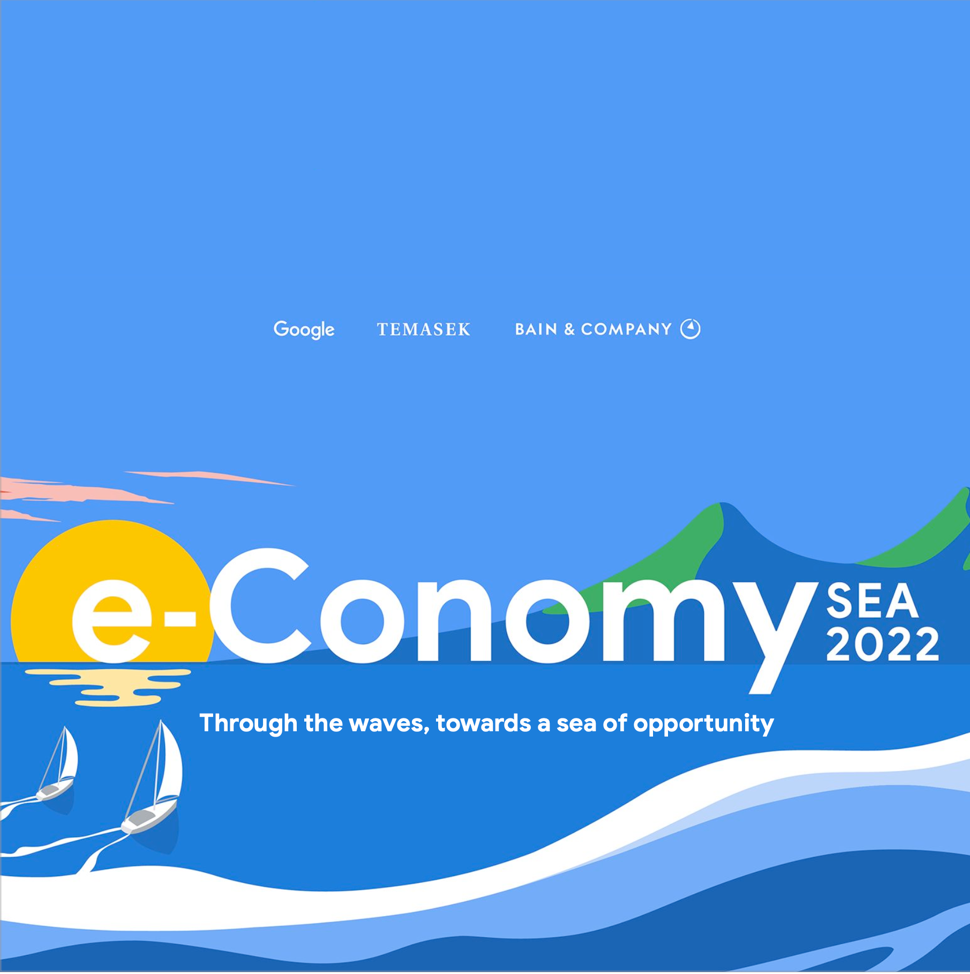The e-Conomy SEA Report 2022 with Stephanie Davis and Florian Hoppe

Stephanie Davis from Google & Florian Hoppe shared the key takeaways on the digital trends in Southeast Asia from the e-Conomy SEA report 2022.
Fresh out of the studio, Stephanie Davis from Google and Florian Hoppe from Bain & Company joined us to break down the key findings from the e-Conomy SEA Report 2022. Stephanie and Florian shared their perspectives on the different digital trends in various sectors from e-commerce to web3 and what important trendlines they are looking forward to in the next 12 months.
"First forecasted back in 2016, we had anticipated the 200 billion by 2025. It also stands out to us that the digital economy grew 20% year on year. And the reason that stands out is that we expected things to slow down somewhat as we came out of the pandemic because we saw incredible acceleration over the last two to three years, and to see that people have returned to so-called normalcy, at least in terms of going out shopping, visiting, retail spaces. And in fact, that mobility has returned to pre-pandemic levels and often times exceeded it, but yet you still see the digital economy growing 20%. So those are real standouts for us." - Stephanie Davis
Introduction
- Introduction: Stephanie Davis (LinkedIn), Vice President, Google Southeast Asia, and Florian Hoppe (LinkedIn), partner at Bain and Company
- For Florian, since it’s your first time on the show, can you give a brief introduction of your role and coverage for Bain and Company?
The e-Conomy SEA Report 2022 (Link)
- Before we discuss the findings from the report this year, can anyone of you share the methodology behind the e-Conomy SEA report every year? How are the data sources curated to bring Google, Bain & Company & Temasek together in building the report?
- What are the key highlights of the e-Conomy Southeast Asia report 2022?
- Based on the market coverage with 5 leading (E-Commerce, Transport & food, Online travel, online media, and financial services) and 4 nascent sectors (Healthtech, Web3, Edtech, and SaaS), are there any surprise learnings that come out this year’s report?
- As the e-Conomy report in 2016 accurately predicted the Southeast Asia digital economy to reach $200B gross merchandise value (GMV) and it arrived 3 years earlier than expected, what are the drivers and macroeconomic conditions that led to the digital economy reaching this number earlier?
- Based on the recent headwinds, for example, the US and China tensions over Taiwan Straits and Russia-Ukraine war, will this digital economy growth be slowed due to less globalization?
- Let’s zoom into fintech, the digital fintech landscape is getting competitive, and given that we have seen fintech and crypto / web3 companies compete for mass and unbanked customers, while established banks fast-tracked digitalization like DBS, what are the interesting innovations or use cases examples you have seen in the landscape?
- Do you think that the fintech and crypto /web3 technologies will converge?
- With the recent crypto crash, do you see Southeast Asia governments will step up the regulation of fintech and crypto in the same space?
- One key data point in the report is in ESG, can you talk about how SEA companies are thinking about the environment, social & governance (ESG), labour practices and diversity, equality and inclusion (DEI) issues moving forward?
- With the rising rates from the US Federal reserve, capital will be expensive and scarce and the recent challenge of startups getting new funding, how do you see the startup landscape into two categories: the early-stage companies and the middle to late-stage pre-IPO companies?
- The report has indicated that the digital economy will reach $1T GMV by 2030. What are the conditions that will help to accelerate the growth towards that number earlier?
- Where are the growing regions in Southeast Asia and how should companies think about expanding in those markets?
- Before the e-Conomy report 2023, what are the key trends and indicators that you will be interested to see in the next 12 months?
Closing
- Any recommendations that have inspired you recently?
- Stephanie's recommendations: Ted Osius, "Nothing is Impossible: America's Reconciliation with Vietnam"
- Florian's recommendations: Lord of the Rings: Rings of Power TV series.
- How does my audience find you?

